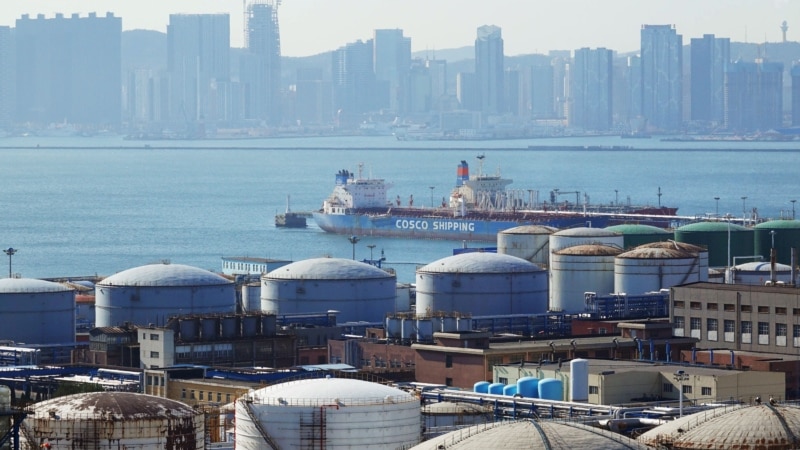Data on Saturday showed Russia remained China’s top oil supplier in March as refiners rushed to buy stranded Sokol crude.
According to data from the General Administration of Customs, China’s imports from Russia, including supplies via pipelines and sea transport, rose 12.5% year-on-year last month to 10.81 million tons, or 2.55 million barrels per day.
This is very close to the monthly record of 2.56 million barrels per day set in June 2023.
Seven sanctioned Russian tankers unloaded Sokol cargo at Chinese ports in March as Russia works to clear excess supply stranded after tightened U.S. sanctions.
More than 10 million barrels of oil supplied by Rosneft’s Sakhalin 1 company have been stuck in storage over the past three months due to payment difficulties and sanctions on shipping companies and vessels transporting the crude.
State-owned CNOOC, which stores Russian crude as a strategic reserve, has also increased imports from Russia.
Data from consulting firm Kpler predicts that maritime shipping from Russia will hit a record high of 1.82 million barrels per day, including 440,000 barrels per day from Sokol and 967,000 barrels per day from the ESPO (Eastern Siberia-Pacific) oil pipeline. day.
Despite Western sanctions and price caps following the Kremlin’s invasion of Ukraine in 2022, Russia remained China’s largest supplier in 2023, shipping 2.14 million barrels per day.
Russia, in coordination with other OPEC+ members, chose to postpone a voluntary 300,000 barrels/day crude oil production cut until the first quarter of this year to support energy prices.
In March, imports from Saudi Arabia, China’s former largest supplier, totaled 6.3 million tons, or 1.48 million barrels per day, a year-on-year decrease of 29.3%.
Riyadh said it would extend its voluntary production cuts of 1 million barrels per day until the end of June, keeping its output at around 9 million barrels per day.
The world’s largest exporter kept the official selling price of its flagship Arab Light product to Asia in March at $1.50 above the Oman/Dubai average as the kingdom seeks to secure market share.
From January to March, imports from Malaysia, a transshipment point for sanctioned goods from Iran and Venezuela, surged 39.2% year-on-year to 13.7 million tons, or 3.23 million barrels per day.
Data showed that 375,296 tons were imported from Venezuela after a rare shipment of 352,455 tons of Venezuelan crude in February amid a temporary easing of U.S. sanctions on Caracas. Sanctions were reimposed from Thursday after the United States said President Nicolas Maduro failed to live up to his election promises.
Customs records show no imports from Iran.
Follow us on Google news ,Twitter , and Join Whatsapp Group of thelocalreport.in
